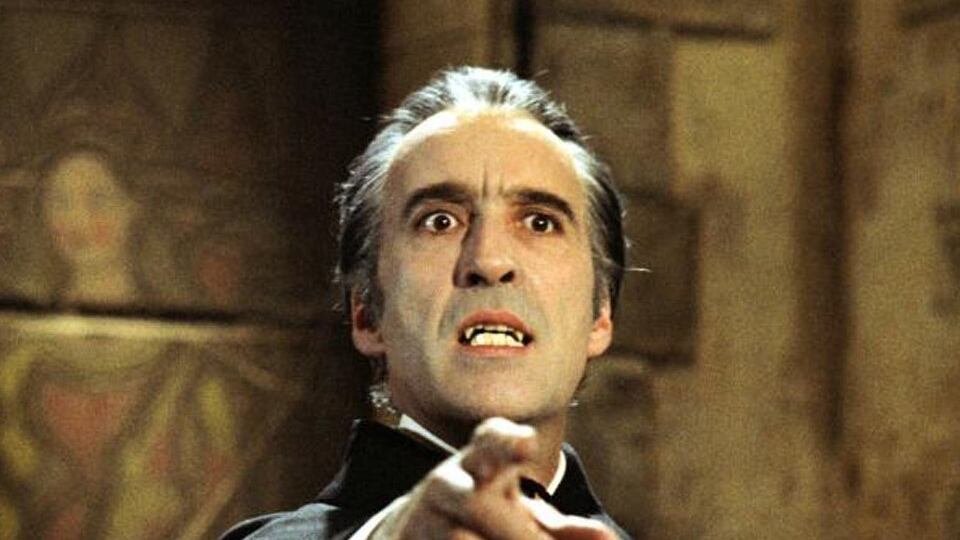No film—when loved—just is what it is.
Movie Madness University instructor Kia Anne Geraths likens cinephilia to a “spider web” of questions, answers and millions of movies.
Why is the camerawork in Dracula A.D. 1972 so compelling? Because it’s by cinematographer Dick Bush, who shot Tommy and Sorcerer. Why does that lake vista or creative kill in Friday the 13th feel familiar? Because it owes to Italian horror master Mario Bava.
That’s the kind of searching fascination that sent a probably too-young Geraths flying onto the internet to research the Trainspotting shot where Ewan McGregor collapses backward onto the floor. She believes there’s a reason, a reference, a craftsperson, a genealogy behind every enlivening movie experience. That’s why she hopes her spider web metaphor spans not only the more than 80,000 titles at Movie Madness, but also human connections, like when her students exchange phone numbers following her classes at the Belmont video store’s Miniplex.
“A lot of my students thought they were the only ones that knew this film or loved this director,” says Geraths, who’s been haunting the Movie Madness aisles and researching film history since childhood. “Then they’re in a classroom and realize they’re not alone. Especially with the Cult Horror class, they’re like, ‘Oh my gosh, I have a Christopher Lee tattoo as well!’”
February will see Geraths reboot her in-person class “International Cult Horror of the 1970s” as part of Movie Madness University’s return to regular on-site courses (knock on wood). Geraths, a cinematographer and documentarian herself (see: the Gabby Smashes web series and a forthcoming doc on spiritualism), was hired in March 2020 to bolster the Hollywood Theatre’s then-new education initiative at Movie Madness.
After two years of mostly online work, the four-week classes are back as intended, capped at the Miniplex’s 18-person capacity. Geraths structures each installment—including “Women in Documentary Filmmaking” and “Revenge of the Flop: Sci-Fi B Movies”—around a 15-minute introduction, a film screening and a 45-minute discussion in large and small groups.
“It’s really important that in the future [students] are able to do their own film reviews or talk about film in a more educational way, as opposed to a passive viewing experience,” she says.
For Geraths, “International Cult Horror of the 1970s” is a particularly “meaty” course because it examines the history behind beloved titles and tropes. The decade saw evolutions in distribution, camera technology, counterculture and uncensored imagery converge and inspire American cinema touchstones like Halloween, Carrie and The Exorcist.
While MMU’s array of course titles can’t be promoted for licensing reasons, those interested can email education@moviemadness.org for the syllabus. February’s offerings run the gamut of horror subgenres: haunted houses, proto-slashers, psychological terror and the influential kitsch of Dracula A.D. 1972, which Geraths says is a class favorite.
The 1972 movie monster riff marked Christopher Lee’s sixth turn as Dracula for legendary English genre studio Hammer, but with a twist. Lee’s towering elegance is unleashed on ‘70s London, as Drac preys on a hippie crew that unwisely dabbles in satanic resurrection rites. It’s a goofy premise for a movie otherwise played precisely straight by Lee, Peter Cushing, and a particularly memorable Christopher Neame as Johnny, who smirkingly combines the Renfield archetype with the vibe of a Mansonian cult leader.
Dracula A.D. 1972 was a critical and commercial failure, but Geraths argues that it had a lasting impact. There’s no Twilight or True Blood, after all, without filmmakers first inviting vampires out of their 19th century castles.
“There are shots of the Johnny character that look identical to the villain in Blade,” she says. “There just weren’t many examples of [vampires] partying.”
On Feb. 2, MMU will also commence its Crash Course offering “Kids on Bikes Can Do Anything.” Covering the post-E.T. evolution of neighborhood misfits burning rubber, it’s a looser exercise in small-group moviegoing with no official lecture or discussion. When February is up, Geraths will roll right into her ‘80s and ‘90s cult horror courses in March and April, with other offerings on musicals and Queer Wave films forthcoming from MMU instructors.
“If a class sells out, there’s always the Movie Madness collection to lay back on while you’re waiting for it to open again,” Geraths says. In other words, the spider web awaits.
SEE IT: Tickets to Movie Madness University’s February courses are available at hollywoodtheatre.org/programs/movie-madness-university-online. $30 per class.

